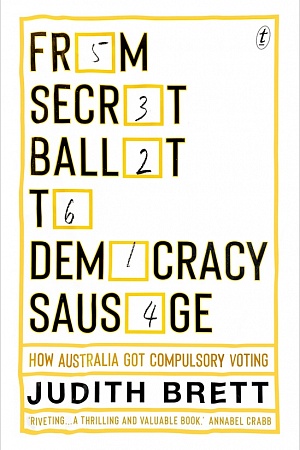The Fall and Rise of the Islamic State
Princeton University Press, $35.95 hb, 189 pp
Scholars and qadis
In his final, unfinished opus, the German writer Max Weber presented his exemplar of irrational, arbitrary law-making by describing an image of a Muslim qadi, or judge, sitting beneath a palm tree, dispensing justice as he saw fit. Later, as scholars began to examine Western portraits of the east – particularly in the wake of Edward Said’s critique of Orientalism – Weber’s description was itself held up as an example of unthinking and condescending Western judgement. More recently, as the Western and Islamic worlds have meshed and clashed – over oil, land, beliefs and geopolitics – the stereotypical image of the Muslim religious leader has been assigned a whole new set of connotations, involving fanaticism, violence and doom: the qadi remains charmingly austere, but no longer benign.
In The Fall and Rise of the Islamic State, Noah Feldman, a professor at Harvard Law School and expert in constitutional and Islamic law, disputes Weber’s image of the qadi’s method as primitive and inconsistent, whilst challenging the more recent Western fears of Islamic clerics and governance. Weber’s account was written in the early twentieth century, when the Ottoman empire had begun to decline and its internal administration lagged far behind the increasingly sophisticated and bureaucratic methods of rule being developed by the Western powers. When the Ottoman military sustained serious losses in the 1820s and 1830s, its rulers embarked on an overhaul of the political, military, economic and judicial systems.
Continue reading for only $10 per month. Subscribe and gain full access to Australian Book Review. Already a subscriber? Sign in. If you need assistance, feel free to contact us.











Leave a comment
If you are an ABR subscriber, you will need to sign in to post a comment.
If you have forgotten your sign in details, or if you receive an error message when trying to submit your comment, please email your comment (and the name of the article to which it relates) to ABR Comments. We will review your comment and, subject to approval, we will post it under your name.
Please note that all comments must be approved by ABR and comply with our Terms & Conditions.